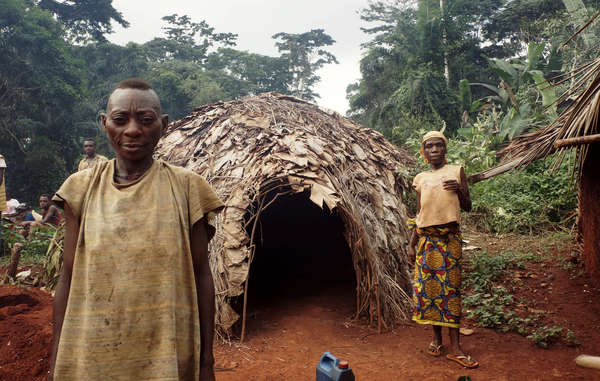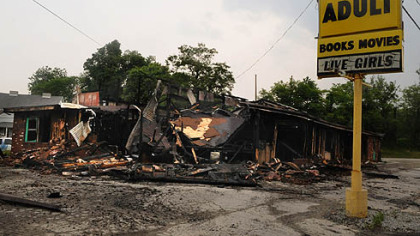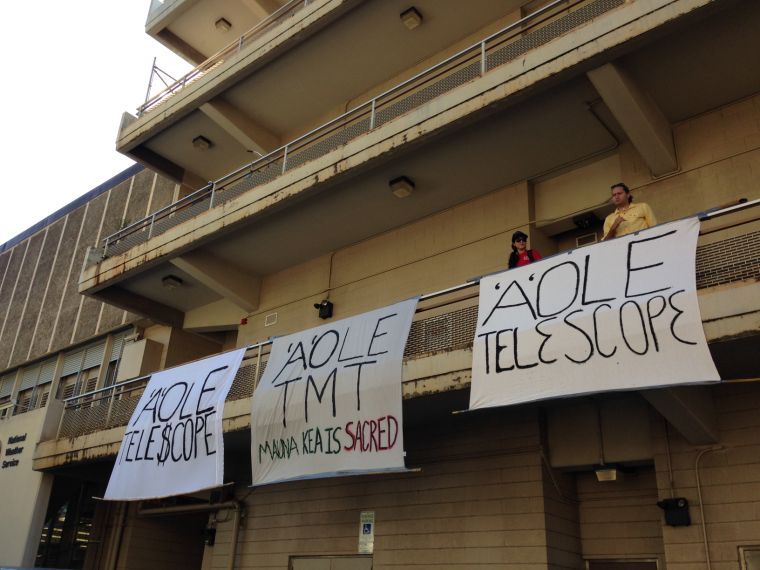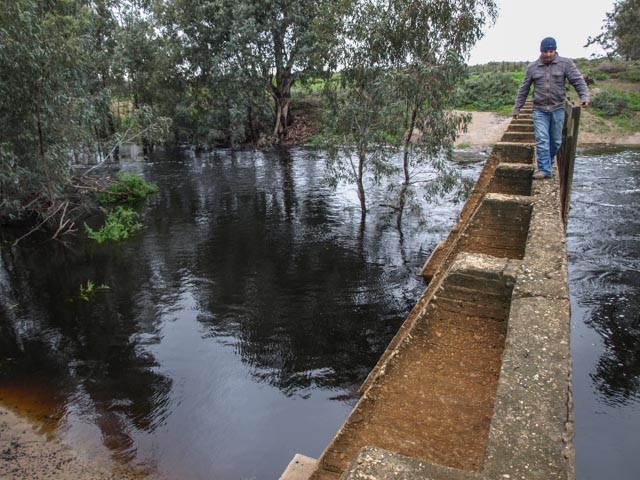The Humility of Love: A Lesson from Chiapas
By Frank Coughlin / Deep Green Resistance New York
Humility. An important word you rarely hear in our culture anymore. Our culture seems to be going in the opposite direction, everything with a superlative. Everything bigger, faster, better, stronger. Everything new, shiny, pretty, expensive. But never humble. “Dude, love that car. It’s so humble.” Yeah, you never hear that.
Politically on the left, in the “fight” as we call it, we’re just as guilty. We have a tendency towards ego, self-righteousness, hyper-individualism. We want our movements to be better, stronger, bigger. We want the big social “pop-off”, the “sexy” revolution, perhaps our face on the next generation’s t-shirts. But we never ask for humility. As we near what most scientists predict to be “climate catastrophe”, I’ve been thinking a lot about humility. I recently was able to travel to Chiapas, Mexico to learn about the Zapatista movement. I was there for a month, working with various groups in a human rights capacity. While I was there to provide some type of service, I left with a profound respect for a true revolutionary humility. This essay is not designed to be a complete history of the Zapatista movement, but perhaps it can provide some context.
The Zapatistas are an indigenous movement based in the southern state of Chiapas, Mexico. The name is derived from Emiliano Zapata, who led the Liberation Army of the South during the Mexican Revolution, which lasted approximately from 1910-1920. Zapata’s main rallying cry was “land and liberty”, exemplifying the sentiments of the many indigenous populations who supported and formed his army. The modern-day Zapatistas declare themselves the ideological heirs to these struggles, again representing many indigenous struggles in southern Mexico. While the Zapatistas became public in 1994, as their name implies, their struggle is the culmination of decades of struggle. Many of the mestizos (non-indigenous) organizers came from the revolutionary student struggles of the 60s and 70s in Mexico’s larger cities. In 1983, many of these organizers, along with their indigenous counterparts, who represented decades of indigenous organizing in the jungles of Mexico, formed the Zapatista Army of National Liberation (EZLN).
From 1983 to their dramatic declaration of war against the Mexican government in 1994, the EZLN formed and trained a secret army under the cover of the Lacandon Jungle. After a decade of organizing and training in the context of extreme poverty, an army of indigenous peasants, led by a mix of mestizos and indigenous leaders, surprised the world by storming five major towns in Chiapas. They chose the early morning hours of January 1st, 1994, the day the North American Free Trade Agreement (NAFTA) went into effect. The connection with NAFTA was intentional because the destructive neoliberal policies inherent in the agreement were viewed as a death sentence to indigenous livelihoods. They used old guns, machetes, and sticks to take over government buildings, release prisoners from the San Cristobal jail, and make their first announcement, The First Declaration from the Lacandon Jungle. With most wearing the now signature pasamontañas over their faces, they declared war on the Mexican government, saying:
We are a product of 500 years of struggle: first against slavery, then during the War of Independence against Spain led by insurgents, then to avoid being absorbed by North American imperialism, then to promulgate our constitution and expel the French empire from our soil, and later the dictatorship of Porfirio Diaz denied us the just application of the Reform laws and the people rebelled and leaders like Villa and Zapata emerged, poor men just like us. We have been denied the most elemental preparation so they can use us as cannon fodder and pillage the wealth of our country. They don’t care that we have nothing, absolutely nothing, not even a roof over our heads, no land, no work, no health care, no food nor education. Nor are we able to freely and democratically elect our political representatives, nor is there independence from foreigners, nor is there peace nor justice for ourselves and our children.
But today, we say ENOUGH IS ENOUGH…
We, the men and women, full and free, are conscious that the war that we have declared is our last resort, but also a just one. The dictators are applying an undeclared genocidal war against our people for many years. Therefore we ask for your participation, your decision to support this plan that struggles for work, land, housing, food, health care, education, independence, freedom, democracy, justice and peace. We declare that we will not stop fighting until the basic demands of our people have been met by forming a government of our country that is free and democratic.
Very true to the words of Zapata, that it is “better to die on your feet than live on your knees”, the EZLN fighters engaged in a self-described suicide against the Mexican government. As Subcommandante Marcos, now known as Subcomandante Insurgente Galeano, the public face of the EZLN, stated, “If I am living on borrowed time, it is because we thought that we would go to the world above on the first of January. When I arrived at the second day, and the following, it was all extra.”1
What followed was a war of government repression. The quiet mountain towns of Chiapas were flooded with advanced military equipment and troops. A twelve-day battle ensued, with rebel retreats and civilian massacres, finally ending with a cease-fire. Following this “peace agreement”, the EZLN no longer offensively attacked, but refused to lay down their arms. The government engaged in raids, attacks on civilian populations, and initiated a paramilitary war. Formal peace accords, known as the San Andres Accords, were signed between the government and the EZLN leadership in February of 1996. They addressed some of the root causes of the rebellion, such as indigenous autonomy and legal protections for indigenous rights. While signed in 1996, the agreements did not make it to the Mexican congress until 2000. There they were gutted, removing key principles as signed by the EZLN, such as the right of indigenous autonomy. Much has been written on the history of the EZLN after the failure of the peace accords, including the march to Mexico City, as well as the EZLN’s attempts at fostering a larger social movement force. The EZLN released their “Sixth Declaration of the Lacandon Jungle”, which highlights their call to the Mexican and international populations to work to ”find agreement between those of us who are simple and humble and, together, we will organize all over the country and reach agreement in our struggles, which are alone right now, separated from each other, and we will find something like a program that has what we all want, and a plan for how we are going to achieve the realization of that program…”
In 2003, the EZLN released a statement that began the process of radically restructuring the Zapatista communities with the development of autonomous municipalities, called caracoles (conch shell). The name caracole was picked because as Marcos once explained, the conch shell was used to “summon the community” as well as an “aid to hear the most distant words”. The caracoles and their respective “councils of good government” (as opposed to the “bad government” of Mexico) were designed to organize the rebel municipalities as well as to push forward the original mandate of indigenous autonomy. With the failure of the San Andres accords, the Zapatistas openly decided that they would follow the word of the accords that they had signed, regardless of the Mexican government’s policy. In line with their mandate to “lead by obeying”, the EZLN, the armed aspect of the Zapatistas, separated themselves from the work of the civil society and abdicated control of the Zapatista movement to the caracoles.
The objective was “to create — with, by, and for the communities — organizations of resistance that are at once connected, coordinated and self-governing, which enable them to improve their capacity to make a different world possible. At the same time, the project postulates that, as far as possible, the communities and the peoples should immediately put into practice the alternative life that they seek, in order to gain experience. They should not wait until they have more power to do this. “What has occurred in the past decade is that the Zapatistas have put the original demand for indigenous autonomy into practice by creating autonomous governments, health systems, economic systems, and educational systems. In doing so, they have stayed true to the ideals of “leading from below” and a rejection of the ideal to overtake state power. They have “constructed a world in which they have realized their own vision of freedom and autonomy, and continue to fight for a world in which other worlds are possible.”
Their fight is very much alive today, more than twenty years after its first public appearance. My recent visit was to the Oventik caracole, located in the Zona Alta region. Myself and three others were sent as human rights observers with El Centro de Derechos Humanos Fray Bartolomé de Las Casas (Fray Bartolome de Las Casa Human Rights Center) to the small community of Huitepec, immediately north of the mountain town of San Cristobal de Las Casas. Here the community is placed in charge of protecting the large Zapatista reserve of Huitepec from loggers, poachers, and government forces. As observers, our task was to accompany the Zapatista families on their daily walks through the 100+ acre reserve, keep track of any intrusions on the autonomous land, and document any infractions. We lived in a simple house, with a fire to cook on and wood panels for sleeping. There was no running water, minimal electricity, and no forms of electronic communication, even with the close proximity to the town of San Cristobal.
Through these eyes we learned of the daily struggle of the Zapatistas. The community consisted of eight Zapatista families. Originally fifteen families, many of them had left Zapatismo to suffer against poverty with the “bad” government. The families who stayed as Zapatistas were indigenous to the area, having struggled to protect the land long before the Zapatista’s uprising in 1994. The families lived in poverty, dividing their time between protecting the reserve, growing flowers for sale in San Cristobal, and working their rented fields two hours away. Their days started with the sunrise and often ended long after the sun had set. Their hands were strong and their walk through the mountains fast, evidence of a lifetime of hard labor. They told us of life before the uprising, coming to Zapatismo, their struggles with inner council decisions, and their hopes for the future.
We bombarded them with questions, testing the theories of the Zapatistas we had read in books and working to understand the structure of their autonomy. Most spoke Spanish fluently, but outside of our conversations, they spoke their indigenous language. Often times, long questions were answered with a pause and then a “Si!,” only to find out later that much had been lost in translation. The Zapatistas taught us to recognize medicinal plants on our walks, how to cut firewood, helped our dying cooking fires, and shared tea and sweet bread with us. For much of our time together we sat in silence, staring at the fire, each unsure of what to say to people from such different cultures. We, the foreigners, sat in silence in the reserve, lost in our thoughts, struggling to understand the lessons in front of us.
Fortunately, there was little work to be done in our role as human rights observers. As the families stated, most of the repressive tactics of the “bad” government in that area have been rare in recent years. Paramilitary and military forces still affect Zapatista communities, as evidenced by the assassination of José Luis López, known as “Galeano” to the community, a prominent teacher in the caracole of La Realidad in May of 2014. In addition, a week prior to our arrival, paramilitary forces had forcibly displaced 72 Zapatista families from the San Manuel community.
As I look back on my experience, I am forced to place it in the context of what we on the left are doing here in the US and I think back to the humility of the experience. The backdrop of the experience was always in the context of the severe poverty the community struggled against. The families cleaned their ripped clothes as best they could, walked for hours in the jungle in plastic, tired shoes, and spoke of their struggle to place food in their stomachs. They told us of the newborn who had died a few weeks prior to our arrival. They softly commented on the lack of rain in their fields, which meant that no crops had grown. When asked what they would do, they shrugged their shoulders, stared off into the horizon, and quietly said “I don’t know.”
One of the elders (names intentionally left out for security reasons) told us of what he felt for the future. He told us that little by little, more and more Zapatistas are asking the EZLN to take up arms again. He felt they were at a similar social situation as they were in 1993, prior to the uprising. And then he said something that truly humbled me. He said, “we love this land, and if we’re going to die anyway, it would be better to die fighting.” His face was filled with a distant look, touched by sadness, but also of determination. And then there was silence. No theories, no Che t-shirts, no rhyming slogans. No quotes, no chest thumping, no sectarianism. Just the honesty of someone who has nothing left to lose and everything to gain. In that moment, I was gifted the glimpse of the true humility of revolutionary thought. Here was a man who has struggled to survive his entire life. He fights in the way he knows how. He has a simple house and wears the same tucked in dirty dress shirt. He works in the fields as well as the communal government. He knows that the fight he and his community face are against massive transnational corporations who wish to extract the precious resources underneath his ancestral land. He knows that they will hire the government, paramilitary forces, and the police to intimidate and coerce him into submission, likely killing him and his family if he refuses. He lives in an area of the world that has been described as one of the most affected by climate change. And because of this climate change, a force that he did not cause, his children will not have food for the winter. He does not talk of Facebook posts, of petitioning politicians, of symbolic protests. There is no mention of hashtags, things going “viral”, “working with the police”, buying organic, fad diets, or identity politics. There are no self-congratulatory emails after symbolic protests. He doesn’t say anything about “being the change,” “finding himself,” or engaging in a never-ending debate on the use of violence versus non-violence. He simply states “we are part of this land and we will die to protect it,” and then continues walking.
I find myself thinking about that community as I re-enter the world of activism here in New York City. We are bombarded with the temptations of an insane and immoral culture of consumption. As I write this, young black men are being assassinated by police officers, inequality is at an all-time high, the newspapers are filled with “Fashion Week” events, and people are camping out in front of the Apple store for their new Iphones. On the left, communities are organizing around every type of campaign, with a growing focus on climate change. While there is some great grassroots work being done, even in the insanity of New York City, I can’t help but see the lack of humility that exists in our progressive communities. I include myself in this critique, and write as a member of the Left.
Our conversations are dominated with rhetoric and sectarianism. We talk in the language of books and posts, not in material experiences. We speak of “developing” the third world, as though our complicity in a globally destructive system of capitalism is somehow as invisible as we would like to believe. We use our politically correct language and speak of our “individual oppression”. We wait for perfection, for the “revolution”, wearing our “radical” clothes, speaking our “radical” talk in our “radical” spaces that are devoid of any connection to the material world. And at the end of the day, the destruction around us, the destruction that we are complicit in, continues. Something that has embedded itself in my thoughts this past year is exemplified by two quotes.
One is a quote by Che Guevara, in which he says, “At the risk of sounding ridiculous, let me say that the true revolutionary is guided by great feelings of love.” The second is a lyric by the group “The Last Poets”, where they proclaim, “Speak not of revolution until you are willing to eat rats to survive, come the Revolution.” Quite different ideas, and yet, as I return to the craziness of New York City, I see how similar they are. Revolution is a term often thrown about without a clear definition. Some people see revolution in the context of an armed uprising of oppressed peoples, others, like the CEOs of Chevrolet, see revolution in terms of their new car line. Others see a “revolution of ideas” transforming the world. For the Zapatistas, it is based in the “radical” idea that the poor of the world should be allowed to live, and to live in a way that fits their needs. They fight for their right to healthy food, clean water, and a life in commune with their land. It is an ideal filled with love, but a specific love of their land, of themselves, and of their larger community. They fight for their land not based in some abstract rejection of destruction of beautiful places, but from a sense of connectedness. They are part of the land they live on, and to allow its destruction is to concede their destruction. They have shown that they are willing to sacrifice, be it the little comforts of life they have, their liberty, or their life itself.
We here in the Left in the US talk about the issues of the world ad nauseum. We pontificate from afar on theories of oppression, revolutionary histories, and daily incidences of state violence. We speak of climate change as something in the future. But so often we are removed from the materiality of the oppression. Climate change is not something in the future, but rather it is something that is killing 1,000 children per day, roughly 400,000 people per year. Scientists are now saying that the species extinction rate is 1,000 times the natural background extinction rate, with some estimates at 200 species a day, because of climate change. Black men are being killed at a rate of one every 28 hours in the US. One in three women globally will be sexually assaulted in their lifetime. There are more global slaves than ever in human history, with the average cost of a slave being $90. It is estimated that there is dioxin, one of the most horrific chemicals we have created and a known carcinogen, in every mother’s breast milk. We read about “solidarity” with the oppressed and work for “justice”. We speak of “loving the land” and wanting to “protect” nature. But how can we say we “love” these people/places/things when the actions we take to protect them have been proven to be wholly ineffective and stand no chance of achieving our stated goals?
We are told to focus on small lifestyle reforms, petitioning politicians who have shown that they do not listen to us, and relying on a regulatory system that is fundamentally corrupt. We are bombarded with baseless utopian visions of a “sustainable world”, complete with solar panels, wind turbines, abundance, and peace. But these are false visions, meant to distract us. Our entire world infrastructure is based in an extractive, destructive process, without which our first world way of life is entirely impossible. Everything from the global wars, increasing poverty, the police state, and climate change are built around this foundational injustice. These injustices are inherent and are not “reformable”. If it were our child being slaughtered to mine the rare earth minerals necessary for our technology, would we perhaps have a different view of our smartphone? If our land were being irradiated by runoff from solar panel factories, would we think differently about green energy? If our brother was murdered by a police officer to protect a system of racial oppression, would we be OK with just posting articles on Facebook about police brutality? If paramilitaries were going to murder our family to gain access to timber, would we engage in discussions on the justifications for pacifism?
In the face of the horrific statistics of our dying planet, we need a radically different tactic. We need a radical humility. As an example, just to temper the slaughter of the 400,000 human beings being killed by climate change would require a 90% reduction in greenhouse gas emissions. That means no more industrial food production, no more travel, no more development of green energy, no electricity, no internet, no police state, and I’m sorry to say, no fucking iPhone 6. Tell me how our movements even touch on the reality of our current situation? I think that for the majority of the Left in the “developed world”, if we truly had love as our foundation, our actions would have much more humility.
For me, this is what Che is speaking to. Those who truly want to change the world need to base their reality in a reality of love. It is love, with all its beauty and romanticism, but also with its inherent responsibility, that powers those who are willing to sacrifice. With that love comes a loss of self and the beginning of humility. Most of us here in the global north who fight for global justice must learn this humility. We, as a whole, are more privileged than any other population has ever been in human history. History has shown that we will not give up this privilege. We will not “eat rats” voluntarily, no matter how radical we may think we are. These things can only be taken from us. If we truly want a world of justice, we must understand this fact and accept the humility to forget ourselves.
The Zapatistas, like almost all indigenous movements, have at the base of their revolution a love of the land. By losing themselves into the larger struggle of the land, they allow the land to teach them how to struggle. But their fight is not our fight. They demand us to return to our cultures and fight. Because what will ultimately kill the Zapatistas will not be the Mexican government. It will be the Mexican government, hired by transnational corporations coming from the US and Canada, who will build dams, extract mineral resources, and create “free-trade zones” so that we can continue to enjoy our material comforts. Until we lose our identity-based politics, and allow ourselves to learn from those who are being oppressed by our lifestyle, we will never achieve the justice we think we desire. Author Drew Dellinger writes in a poem entitled “Angels and Ancestors”: “I pray to be a conduit. An angel once told me, ‘The only way to walk through fire…become fire.’”
If we work for justice, let us embrace this humility and allow ourselves to be led by those who know. Let us become fire. And perhaps in that way, we will be ready to eat rats.
To repost this or other DGR original writings, please contact newsservice@deepgreenresistance.org





